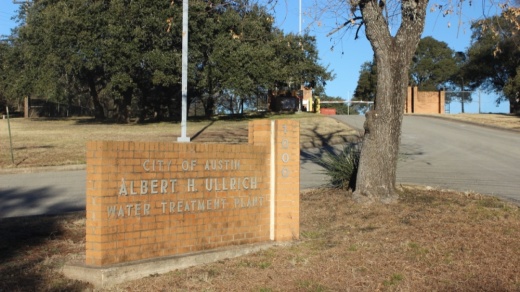Austin Water has yet to launch an investigation of the water treatment issue that led to the ongoing citywide boil-water notice and is not detailing its cause, while anticipating that the notice will be lifted by the evening of Feb. 8.
According to Austin Water Director Greg Meszaros, operational errors at the city water utility's Ullrich Water Treatment Plant on Feb. 5 caused a spike in water turbidity—a measurement of water clarity and quality that can point to potential contaminants—and prompted the boil notice. Per Texas Commission on Environmental Quality regulations, such notices cannot be lifted before corrected readings are confirmed. That review process remains in progress as of midday Feb. 8.
Meszaros said he was first alerted that there was a treatment problem at Ullrich affecting outgoing water around 8 a.m. Feb. 5. Austin Water said the public was not notified of the issue until around 7:35 p.m.
According to a timeline provided by the utility, Ullrich was taken offline around 9:30 a.m. and Austin Water's incident management team was activated for a noon meeting. Water data collection and review ran for several hours before Austin Water and TCEQ determined a boil notice was necessary at 5:15 p.m. The utility then spent the next two hours preparing public notifications and reviewing other requirements.
"The Ullrich Water Treatment Plant was taken offline immediately, and water production was increased at our other two plants when the issue was discovered. While the plant was offline, in coordination with TCEQ, we evaluated the system condition, and it was determined that a boil-water notice was required. Water disinfection parameters have remained consistent and within regulatory standards," Austin Water spokesperson Amy Petri said in an email.
Austin Water could not confirm what operational failures led to the turbidity issue or how much water was affected. The utility said a full review of its response, including a more detailed timeline and possible corrective actions, will be included in a future report.
"Austin Water crews are fully invested in lifting the boil-water notice and will begin a full review after it has been rescinded," Petri said.
Typically, the utility "continuously" tracks turbidity levels throughout a multistep treatment process that flags and removes particles from water. While the issue only affected water production at Ullrich over the weekend, Petri said water from all three of the utility's treatment plants ultimately mixes together resulting in the citywide notice. She also said the issue did not relate to recent upgrades at Ullrich aimed at addressing possible turbidity spikes from flooding.
The February boil notice is Austin's third in recent years, following a 2018 alert stemming from local flooding and widespread system problems in 2021 in the midst of Winter Storm Uri. Both of those weather-related incidents were followed by the release of after-action reports with suggested improvements for Austin Water. The utility said it has completed all of its 11 2018 flood recommendations and 37 of its winter storm recommendations, with 25 more "underway."
Petri said another report will be coming after this month's event that could produce more recommendations for reliability.
"As Austin Water has done following the previous boil water events, we will conduct a thorough after-action review and dedicate resources to completing corrective actions in a timely manner," she said.
Mayor Pro Tem Alison Alter will also call for an external audit of the utility Feb. 17, a move cosponsored by five of her colleagues as of Feb. 8. Council plans to gather for a special meeting on Austin Water operations Feb. 15.





